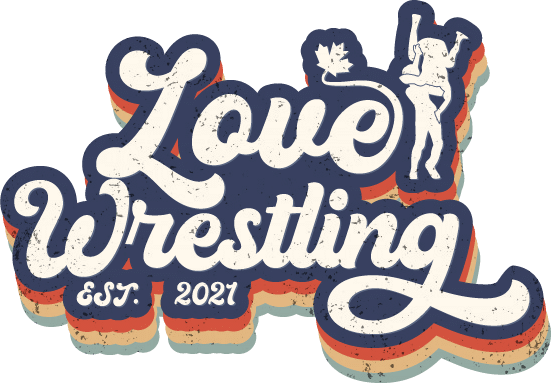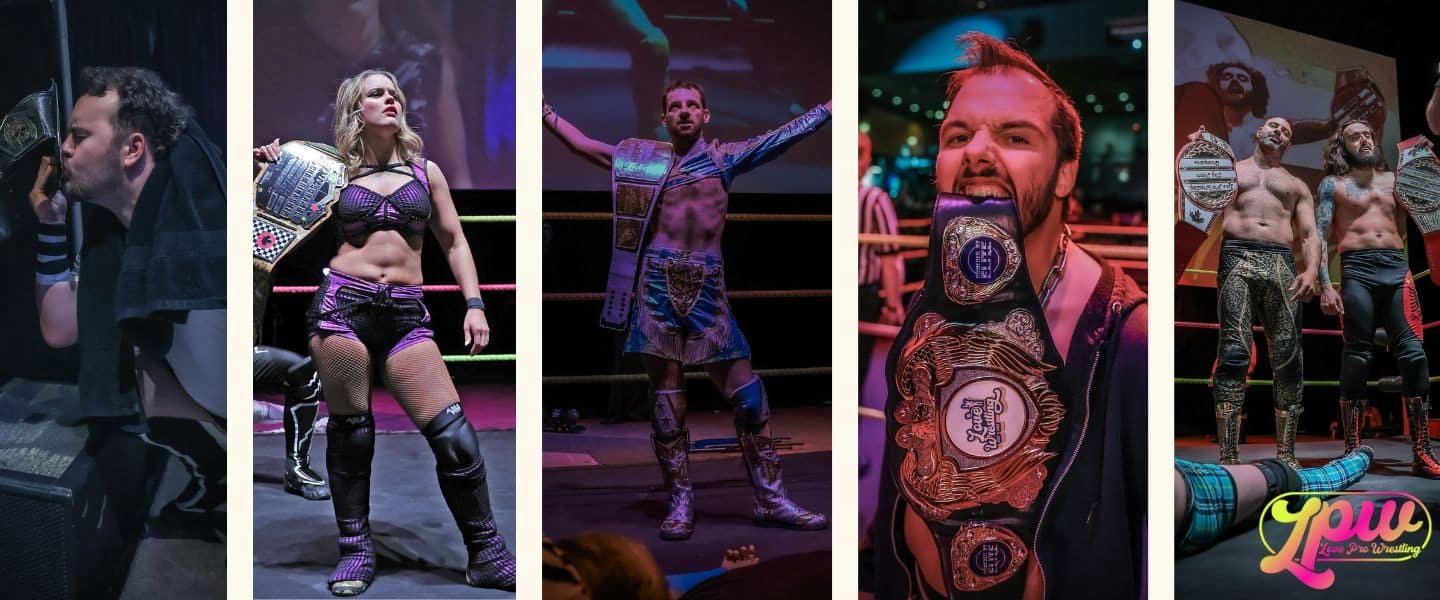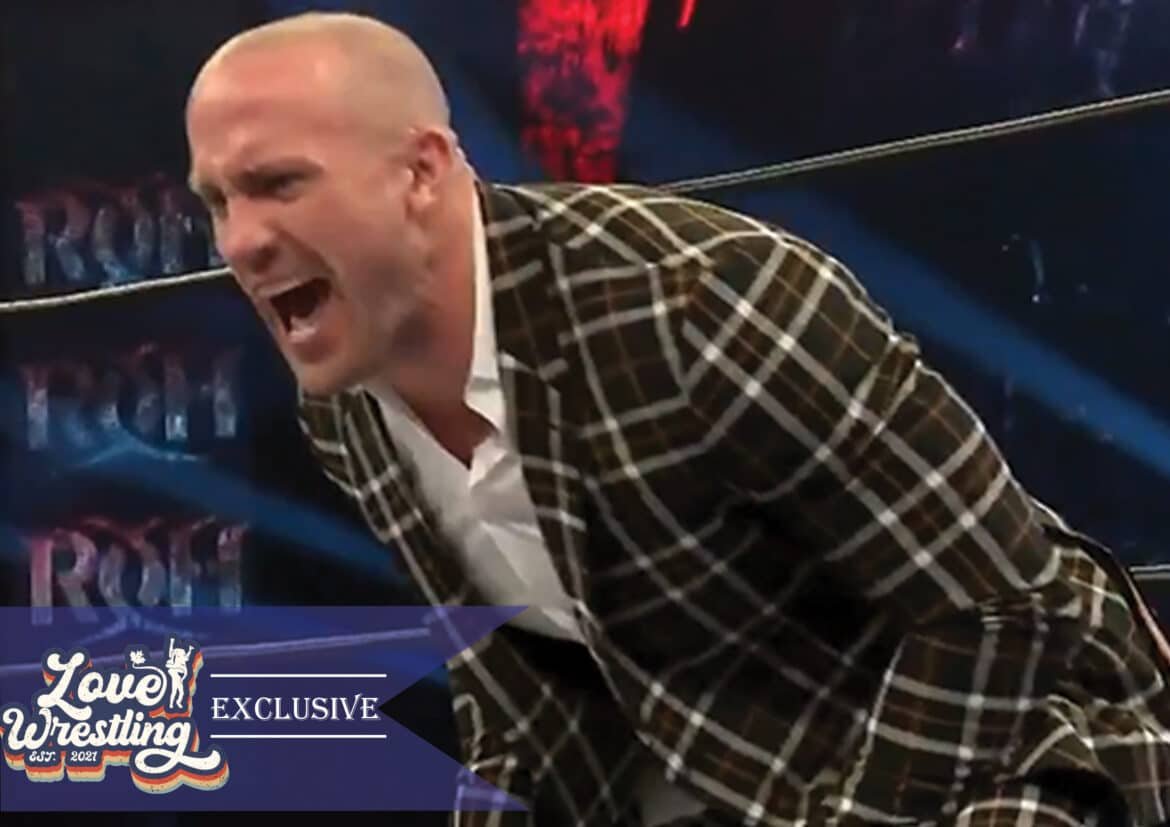Last November, Mike Bennett made his shocking return to Ring of Honor following nearly six years away from the promotion. While many had speculated that it was a matter of when, not if, Bennett would find his way back to ROH, his return to aid best friend Matt Taven from a beatdown still sent shockwaves through the wrestling community.
Admittedly, as a fan of Bennett’s since his original run with Ring of Honor, I was excited to ask him about the changes or differences he’d noticed in the promotion through his time away. While Ring of Honor has presented consistently entertaining wrestling over the past half-decade, there’s been an ample amount of roster turnover and a number of new individuals on top of the promotion. As any sports organization will know, culture – for as much of a cliche as the word can be sometimes – is of the utmost importance and was something I was excited to ask Bennett about.
“You last wrestled for ROH in 2015,” I began our conversation. “We talked a little bit about the roster turnover, but as far as – I hate the buzzword – but as far as the culture and as far as sort of the backstage stuff with ROH, have you noticed a lot of a difference? Where have you maybe seen some changes in the last five years that maybe weren’t there before?”
The former Top Prospect tournament winner was quick to answer, and not just to give one example of some of the positive changes in ROH.
“It’s definitely production-wise and the amount of time and effort they put into their production,” he replied. “Like, it was good when I was there, but now it’s like they’ve really stepped it up. They’ve really amped it up, they have a direction on where they want to take it. But as far as the culture and as far as the mindset, it’s 100%, the same. Ring of Honor wrestlers always have that mindset of like, we’re at the forefront of professional wrestling.
To me, everything that’s professional wrestling now started at Ring of Honor. You look at the main roster at WWE, it’s all Ring of Honor guys. You look over at AEW, it’s all Ring of Honor guys. Ring of Honor built what is now professional wrestling. And so, what I think is the mindset now – at least this is the mindset for me, and it seems to be with a lot of the younger guys, too – is like, ‘alright, how are we going to be the forefront again? What do we need to do?’”
He paused for emphasis.
“And, they’re doing it,” he stated. “They did it with the Pure Tournament. They’re doing it with how they’re filming promos. It’s bringing in this sport element to it that isn’t really done in the States. Like because WWE really doesn’t do sport, doesn’t really consider wrestling – like it’s not even really a wrestling company anymore. And AEW does it to an extent, but they also mix in everything with it, where with Ring of Honor and the Pure Tournament, they’ve been able to take something that I think is missing from wrestling, and that is the competitive nature of it.”
“Like, everyone knows wrestling is not real,” Bennett conceded. “We get it. They’re not like, ‘oh, I’m gonna bet money,’ or ‘this guy’s gonna win.
‘ Everyone knows that we’re pre-determining this stuff. But, if you can make people suspend their disbelief and actually invest in it like a sport, you’re going to start hitting on another demographic that may not be touched upon where people are like, ‘I love pro wrestling because of the athleticism and the moves that the guys do and the emotion.
‘ But, what I think his Ring of Honor is trying to do is be like, ‘okay, let’s try to find not only that fan base but maybe we can expand on it to the people that think that might be kind of hokey and corny. Let’s touch on the people that are like, ‘oh, okay, this is just two guys or two girls just – like there’s a problem, and they’re going to settle it in the ring.’ That’s what Ring of Honor is really doing, and I think they’re going to set the precedent again for what the forefront of wrestling is going to be because I truly believe people are getting sick of the hokiness of wrestling. I think they are. I think they want to see more of the matches. I think they want to see more of the sport of professional wrestling.”
I agreed as Bennett continued, pointing out that even with some of the promotion’s less-traditional characters, they still fit the mould of Ring of Honor’s wrestling-based presentation.
“I think the cool thing with Ring of Honor is everyone has these layers to them, where it’s like, what you see isn’t always what you get,” he commented. “With someone like PCO, you see him and you’re like, ‘alright, this might be a little hokey.’ But then you watch him and you’re like, ‘holy crap, I wouldn’t want to meet that guy in a back alley, because he’d probably rip my eyeballs out.’ And that’s what’s cool about it. That’s this ability to be like, okay, these people can have – even Vincent with what he’s doing right now. It’s like, all right, he’s doing this very gimmicky type thing. But, when it comes down to what he’s actually doing, is he’s actually obsessed with being a world champion or being a professional wrestler, and like, this is just who he is, but at the core of it, he’s a professional wrestler. And I think we’ve gone away from that, where we’re like, ‘oh, well, it’s just, it’s all just entertainment, and blah, blah, blah, cool, whatever,’ and we’ve gotten away from the fact that at the core, we’re professional wrestlers.”
Bennett summed it up perfectly in this writer’s opinion, and not simply because of his referencing one of my favourite TV shows.
“At the core of The Walking Dead, there’s still a zombie apocalypse,” he said. “There’s all these other stories going on, but at the core of it, everyone’s trying to survive the zombie apocalypse. That’s just what I feel like with Ring of Honor is like, there can be all this stuff going on, but at the core of it, we settle our issues, we settle our differences in the ring in the sport that we’re portraying on television.”
Please credit Spencer Love/Love Wrestling with any of the above quotations used.


